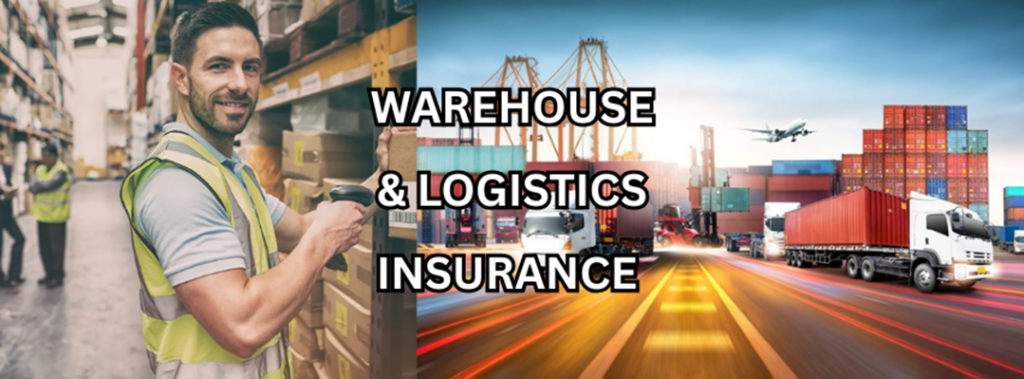Warehousing and logistics are the backbone of modern trade. Whether you’re storing raw materials, finished goods, or managing supply chains, the risks are high—fires, theft, natural disasters, accidents, or cargo damage can lead to huge financial losses.
That’s why insurance for warehouses and logistics businesses is not just an option—it’s a necessity. In this blog, we’ll explore the types of insurance needed, what they cover, and why they matter.
Why Do Warehouses and Logistics Businesses Need Insurance?
High-value goods stored in warehouses are vulnerable to fire, theft, or damage.
Logistics operations face risks like accidents, cargo loss, or delays.
Clients, lenders, and partners often require proof of insurance before working with you.
Insurance ensures business continuity and protects both owners and clients from major financial setbacks.
Key Insurance Policies for Warehouses
1. Fire & Property Insurance
Covers damages to warehouse buildings, stock, and equipment due to:
Fire, lightning, explosion
Riots, strikes, and malicious damage
Natural calamities like floods, storms, and earthquakes
2. Burglary & Theft Insurance
Protects against losses due to theft, burglary, or break-ins. Ideal for warehouses storing high-value goods like electronics, textiles, or FMCG items.
3. Stock Insurance
Specifically covers inventory and raw material losses due to fire, water damage, or other insured perils.
4. Business Interruption Insurance
Compensates for loss of income if warehouse operations are halted due to an insured event (e.g., fire, flood).
Key Insurance Policies for Logistics Businesses
1. Marine Cargo Insurance
Covers goods in transit—by road, rail, air, or sea—against risks like:
Accidents during transportation
Theft or pilferage in transit
Natural disasters damaging cargo
2. Motor Insurance (Commercial Vehicles)
Mandatory for all logistics companies using trucks, vans, or carriers. Protects against:
Third-party liability (legally required)
Optional own-damage cover for the vehicle
3. Liability Insurance
Covers claims from third parties if your logistics operations cause:
Damage to client goods
Bodily injury or property damage during handling
Additional Covers to Consider
Fidelity Guarantee Insurance – Covers losses from employee dishonesty/theft
Equipment Insurance – Protects forklifts, cranes, and handling machinery
Cyber Liability Insurance – Essential for logistics businesses using digital tracking systems
Tips for Choosing the Right Policy
Assess Risks – Consider location, type of goods stored, and transport routes
Check Legal Requirements – Motor and liability insurance may be mandatory
Customise Coverage – Add extensions like terrorism cover or temperature-controlled stock cover for perishable goods
Review Regularly – Update insurance as your inventory or fleet grows
Conclusion
Warehouses and logistics businesses operate in a high-risk environment where one accident can mean massive financial losses. The right insurance mix—fire, stock, burglary, marine cargo, liability, and motor insurance—provides comprehensive protection.
With proper coverage, you can safeguard not just goods and assets but also business continuity and client trust.
Need help understanding insurance
Consult us.
Email: info@insuranzee.com
Contact +91-9202677297

